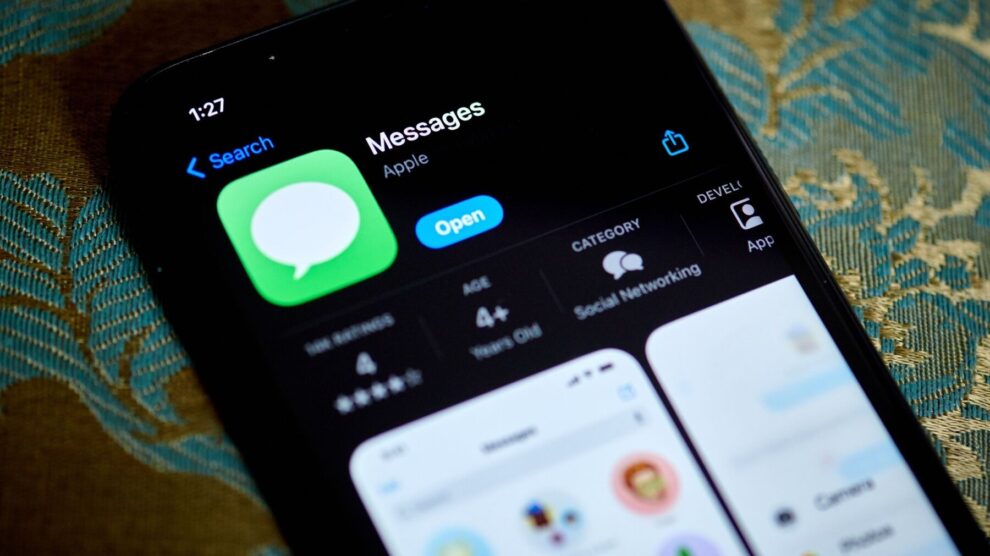Apple‘s recent decision to shut down third-party applications that allowed Android users to access iMessage has sparked controversy and disappointment among the tech community. This move effectively isolates iPhone users from their Android friends and family, hindering cross-platform communication and further solidifying the iOS ecosystem as a walled garden.
iMessage on Android: A Short-Lived Dream
Several applications, such as Beeper and Sunbird, emerged in recent years offering Android users a glimpse into the iMessage world. These applications exploited vulnerabilities and loopholes to enable iMessage functionalities on Android devices, allowing users to send and receive messages, photos, and other content seamlessly with their iPhone contacts.
Apple Steps In, Curtain Falls on iMessage for Android
However, Apple swiftly put an end to this workaround. Citing concerns about security and privacy, the tech giant took steps to block these applications from accessing its messaging platform, effectively shutting them down and leaving Android users out in the cold.
Criticism of Apple’s Decision to Block Access
This decision has garnered significant criticism from various fronts:
- Limited Communication: Android users are now left with a fragmented experience, forced to rely on alternative messaging platforms that lack the features and functionality of iMessage.
- Anti-Competitive Practices: Critics argue this move is anti-competitive, as it stifles innovation and limits user choice.
- Privacy Concerns: While Apple claims privacy drove this decision, some question the validity of this argument since the shut down apps already used Apple’s security measures.
The Decision Hinders Cross-Platform Messaging
Apple’s decision to shutter third-party iMessage access for Android casts a shadow over the future of cross-platform communication. While Apple has expressed no intention of developing its own iMessage app for Android, the current situation leaves millions of users yearning for a seamless and integrated messaging experience.
Potential Solutions for Universal Cross-Platform Messaging
There are several potential solutions to this dilemma:
- The industry could collaborate to develop a universal messaging standard that allows different platforms to communicate seamlessly.
- Apple could consider opening up its iMessage platform to trusted third-party developers to bring secure iMessage apps to Android.
- Independent messaging platforms like Signal and WhatsApp can continue to innovate in this space by offering robust features and cross-platform compatibility.
Obstacles Facing Universal Cross-Platform Messaging Solutions
However, there are substantial obstacles facing universal messaging solutions:
- Walled gardens and silos: Major players like Apple and Google have incentives to keep users locked into their platforms.
- Business model differences: Monetization strategies may differ across platforms, making alignment complex.
- Security and privacy concerns: Securely opening closed platforms while retaining privacy safeguards presents engineering and design challenges.
Is a Universal Standard Possible?
While substantial obstacles exist, industry collaboration guided by consumer interests could make universal messaging achievable over time through:
- Development of open technical standards and protocols
- Regulatory oversight to incentivize interoperability
- Product design choices that keep consumer experience seamless across platforms
User Demand Driving Towards Cross-Platform Messaging
Ultimately, consumer demand will likely prove the biggest motivator pushing platforms towards compatibility. Mobile messaging has become central to digital life. Users expect to communicate freely across platforms and ecosystems. Denying this user-driven momentum could cause growing backlash over time. Even the mightiest tech giants cannot ignore market preferences forever if they wish to retain loyal users.
The Outlook for Cross-Platform Messaging
In the interim, third-party messaging apps like Signal offering secure and seamless communication remain the best option for achieving cross-compatibility. However, the onus lies on major industry players to either collaborate towards an open standard, or independently evolve their platforms towards user-centric interoperability.
A future where users can communicate freely regardless of device or platform remains the digital promised land. Progress depends on consumer pressure and the priorities set by Big Tech. For iPhone and Android users divided by Apple’s recent actions, the dream of platform-agnostic messaging endures—even if the roadmap towards realizing it remains unclear.










Add Comment